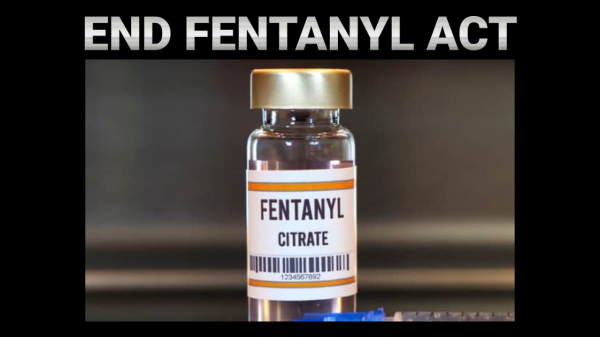Last week, U.S. Rep. Stephanie Murphy, D-Fla., joined U.S. Rep. David Trone, D-Md., and a panel of experts in a discussion about China’s role in America’s opioid crisis, how the crisis is harming American families and communities and what more the U.S. can do to combat the problem.
Murphy said the following:
Hello and welcome. I’m Congresswoman Stephanie Murphy and I represent a district in Central Florida. I’m honored to be here with my colleague, Congressman David Trone, who represents a district in Maryland.
Like so many of our colleagues, Congressman Trone and I represent communities that have been hit very hard by the opioid epidemic. Too many of our constituents have lost their lives as a result of opioid overdoses.
Opioids are the main cause of drug-related deaths in the United States, with nearly 67,000 of the 81,000 overdose deaths over the past year attributed to heroin, prescription drugs, and synthetic opioids like fentanyl.
While certain population groups are at higher risk than others, the opioid epidemic does not discriminate on the basis of class, age, race, gender, or geography.
The number of our fellow Americans who have been affected is truly staggering. And it’s important to remember that behind every abstract statistic lies a shattered human life, a brokenhearted family, a distraught community, and a spiritually and economically diminished nation.
The epidemic has also taken a terrible toll on the most vulnerable members of our society—babies born to addicted to opioids because their mothers used opioids during pregnancy. A few years ago, Congress passed my bipartisan bill that created a new federal grant program to ensure states like Florida and Maryland have comprehensive plans in place to care for these babies.
Of course, the opioid epidemic is a complex and multi-faceted crisis. There are many different components to it, both on the supply side and on the demand side.
Today, we are going to focus on one specific aspect of the crisis, which is the role that China that plays in America’s opioid epidemic.
To help us understand the problem, and to discuss the best ways to combat it, we have an all-star panel of experts, each of whom I will introduce in a moment.
As background, about 6-in-10 opioid-related overdose deaths involve a powerful synthetic opioid called fentanyl. The term “synthetic” means it was made in a laboratory.
Fentanyl is similar to morphine, but is far more potent. It comes in prescription form and is used to treat patients in severe pain.
But fentanyl is also manufactured illegally in other countries. Then it makes its way into our country through various means, and it is distributed as a street drug.
It can be sold as a powder; in eye droppers or nasal sprays, or made into pills that look like prescription opioids. It can also be mixed with other drugs like cocaine or heroin. This is very dangerous because users may be unaware that fentanyl has been added.
This is where China comes into the picture. China is the largest source of illicit fentanyl and fentanyl-like substances in the United States. Illegal drug manufacturing thrives in China because their chemical and pharmaceutical industries are weakly regulated and poorly monitored. In a country where economic growth is elevated above all else, regulating these industries isn’t a high priority.
Chinese-produced synthetic opioids are getting into our country in a few ways. First, exporters can ship or transport them directly to the United States. All sorts of shadowy techniques are used to get the drugs here.
The other way these drugs are getting here from China is through third countries like Mexico and Canada. In this case, precursor chemicals or the synthetic opioids themselves are shipped to these countries, where they are either made into fentanyl at labs, or mixed with other illicit drugs before making their way to the U.S.
The United States has tried to work with China to get them to clamp down on the manufacture and export of these deadly substances, and we’ve made some progress. In 2019, China imposed domestic controls on all fentanyl-like chemicals, which was a major step.
In addition, better information sharing and joint investigations between the U.S. and China have led to an increase in the number of seizures before these drugs make it to our communities.
However, we still have a long way to go. The Chinese government has not made a strong enough effort to control precursor chemicals that are used to make synthetic opioids. The Chinese government has also declined to approve our country’s request to open up U.S. Drug Enforcement Administration offices in major Chinese cities. Given that the opioid epidemic is killing American citizens and destroying American communities, the Chinese government’s inaction is completely unacceptable.
Our panel today will help us understand what more Congress and federal agencies can do to address this serious problem. Before I introduce our panelists, let me turn it over to Congressman Trone, who is a leading voice on opioid issues in Congress.












